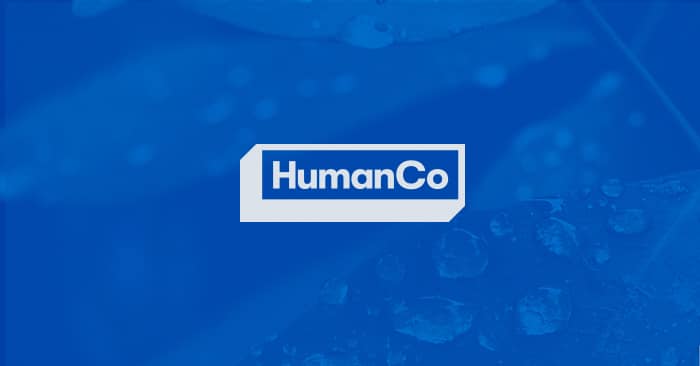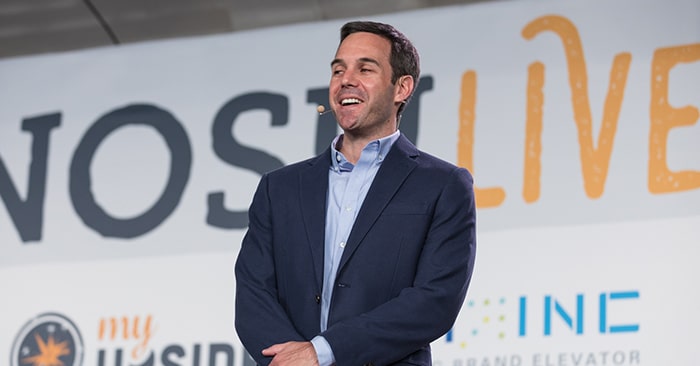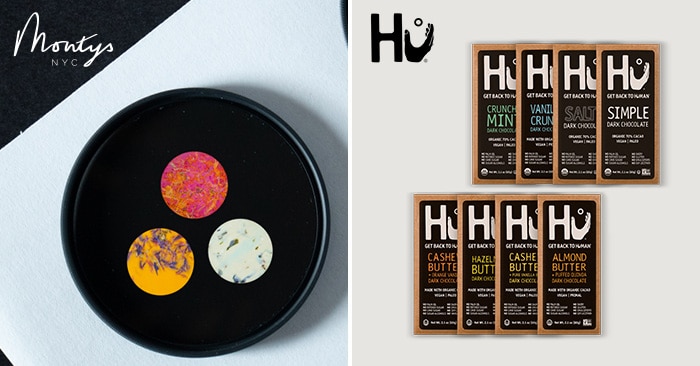HumanCo Hires Amplify Exec to Help Create a ‘New Standard’ in CPG

Founded in 2019, HumanCo is not a fund, but rather a holding company that can incubate or acquire the majority of food, beverage, personal care, cleaning or consumer technology companies. Karp describes the company as a hybrid between Proctor and Gamble and Berkshire Hathaway.
In January the company closed a $15 million funding round led by Brian Sheth, co-founder of Vista Equity Partners. Kristin Ross, managing director of CPG accelerator SKU; Indra Nooyi, former chairwoman and CEO of PepsiCo Inc; Justin Mares, co-founder and CEO of bone broth company Kettle and Fire; and supermodel Karlie Kloss also took part, among others.
The company’s model is to work with brands with $2 to $20 million in revenue; Karp called the initial round of $15 million “misleading,” maintaining that if a larger deal is of interest, HumanCo’s investors will either place further capital in the holding company, or invest in a company themselves
By partnering with HumanCo, Karp and Lisman say, portfolio companies will be able to scale and see significant cost savings by sharing back-end services and even ingredient orders and production efforts. It’s a similar strategy to that of VMG’s latest spinoff, Velocity Snack Brands (VSB) although distributed across a wider set of categories. The model will also allow founders of acquired brands to focus on one specific part of their business, such as marketing or innovation, and eventually, even move onto other HumanCo brands if interested.
“This is very different, it is a unique model and I think that model is a huge advantage,” Lisman said. “Yes we’re building this platform, but we’re also going to be operating businesses. There’s a rationale behind trying to maximize impact between verticals, there’s a lot we can do behind the scenes.”
Lisman is familiar with this strategy, having most recently served as the VP and general manager of Amplify Snack Brands, The Hershey Company’s snacking platform. Amplify has maintained a similar shared services model to somewhat positive effect, most recently integrating puff company Pirate’s Brands. Lisman said that when Amplify was acquired by Hershey’s, it had a solid “keystone asset” in SkinnyPop, but much of his work centered around building out its “relatively immature” platform infrastructure to support future additions.
He told NOSH that although he relishes his roughly nine years at Hershey’s, the time was right to pursue another challenge. The opportunity to start with a brand in the early stages of its development was particularly appealing, he added.
Karp himself is no stranger to investing and CPG as well. He most recently founded Tourbillon Capital Partners, which at its height, had more than $4 billion of managed assets. Tourbillon wound down in 2018, with president Ross Berman also making the jump to HumanCo.
Karp said his overall career experience has taught him much about what it takes to support an emerging CPG brand. However, Hu Kitchen — and its investors of Sonoma Brands and Mondelez — won’t be part of HumanCo itself. Rather the group’s first acquisition was New York-based Monty’s, which makes plant-based cheeses from cashews.
The company also plans to launch it’s own frozen line later in 2020.
All products under the HumanCo purview must agree to a strict set of quality standards, including being free from GMO’s, pesticides, herbicides, antibiotics, refined sugars, starches and grains. Furthermore, all claims must be supported by science-backed evidence with a focus on “human health and sustainability,” Karp said. Dr Darish Mozaffarian, a cardiologist and Dean of Tufts’ University Gerald K and Dorothy R. Friedman School of Nutrition Science and Policy, will determine if these guardrails are met and hold veto power for any new product launches or acquisitions.
At stake is not just capital, Karp said, but the opportunity to make a systematic change in the food and personal care industries.
“Changing health outcomes in this country is the single most important variable to basically global prosperity. In terms of how much we spend on health care, how much people are sick, how many people have chronic disease, all prevented by food and lifestyle,” Karp said. “We want to make sure that everything we say is evidence based with no hokey, weird stuff, which …some of it is interesting, but a lot of it has no validity.”
Ultimately, Karp said, there are a number of different ways HumanCo may pursue an exit, ranging from selling individual brands to selling the holding company. Like Amplify did before its acquisition, the company could eventually go public as well. But for now, Karp feels no pressure to think about an ending, noting that removing the pressure of limited partners was largely why he didn’t want to pursue the creation of a fund in the first place.
“There have been so many high profile exits, that have made everyone see the dollar signs, that it’s changed people’s approach to just growing revenue at any cost,” Karp said. “Will and I are trying to build real companies, not to sell them because we believe that you can actually have a great standalone business and [that] there’s a way we can really affect change because being healthy is really hard.”



















